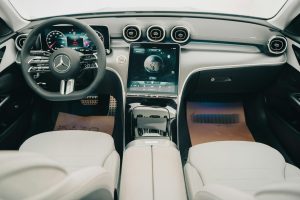Automotive Brands Reinventing Themselves for the Digital Age
In today’s digital age, the automotive industry is facing a major disruption. With the rise of technology and the increasing demand for digitalization, automotive brands are forced to adapt and reinvent themselves in order to stay relevant and competitive in the market. As consumer behavior and expectations continue to evolve, automotive companies must find ways to not only meet but exceed their customers’ digital needs. This has led to a significant shift in the way automotive brands operate and market themselves, with a strong focus on leveraging digital strategies and innovations to connect with modern consumers. Let’s take a closer look at how automotive brands are reinventing themselves for the digital age and the impact it has on the industry as a whole.
The Need for Reinvention
The traditional model of selling cars through physical dealerships is no longer effective in today’s digital landscape. With the rise of e-commerce and online shopping, consumers expect a seamless and convenient experience when purchasing a car. This has resulted in a decrease in foot traffic to dealerships and a growing need for automotive brands to establish a strong online presence. In addition, the emergence of new players in the market, such as technological giants and start-ups, has posed a threat to traditional automotive companies. In order to stay in the game, automotive brands must reinvent themselves and adapt to the digital age in order to meet the demands of modern consumers.
Embracing Technology
The key to success for automotive brands in the digital age lies in embracing technology. This includes developing advanced in-car technologies, integrating smart features, and adopting digital marketing strategies. In-car technologies such as voice activation, GPS navigation, and advanced safety features have become must-haves for consumers, and brands that fail to incorporate them into their vehicles risk losing customers to their competitors.
Moreover, automotive brands are also leveraging smart features, such as smartphone integration and remote vehicle control, to provide a seamless and connected experience for their customers. This not only enhances the driving experience but also allows brands to collect valuable data on their customers’ behavior and preferences, which can then be used to improve their products and services.
Digital Marketing Strategies
A strong online presence is essential for automotive brands to connect with modern consumers. As more and more people turn to the internet to research and purchase cars, digital marketing has become crucial for the success of automotive companies. This includes having a user-friendly and visually appealing website, engaging with customers on social media platforms, and utilizing search engine optimization (SEO) to improve online visibility.
Automotive brands are also exploring new and innovative ways to connect with their target audience through various digital channels. This includes influencer marketing, where companies collaborate with popular social media influencers to promote their products and reach a wider audience, as well as virtual and augmented reality experiences, which allow customers to virtually interact with and experience different car models.
The Impact on the Industry
The shift towards digitalization has had a significant impact on the automotive industry as a whole. As traditional automotive companies continue to adopt digital strategies, we are seeing new partnerships and collaborations forming between automotive and technology companies. This has led to the development of new and innovative products, such as self-driving cars and electric vehicles, which have the potential to reshape the industry and pave the way for a more sustainable future.
Furthermore, the rise of digitalization has also led to a more competitive landscape, with traditional automotive companies now facing competition not only from each other but also from technology-driven start-ups. This has resulted in a greater focus on innovation and customer-centric strategies, ultimately benefitting the industry as a whole and providing consumers with more options and better experiences.
In Conclusion
In conclusion, automotive brands must continue to reinvent themselves in order to stay relevant and competitive in the digital age. By embracing technology and adopting innovative digital strategies, automotive companies can attract and retain customers, improve their products and services, and ultimately shape the future of the industry. As consumer needs and expectations continue to evolve, it is imperative for automotive brands to remain agile and adapt to these changes in order to thrive in the ever-changing landscape of the digital age.










